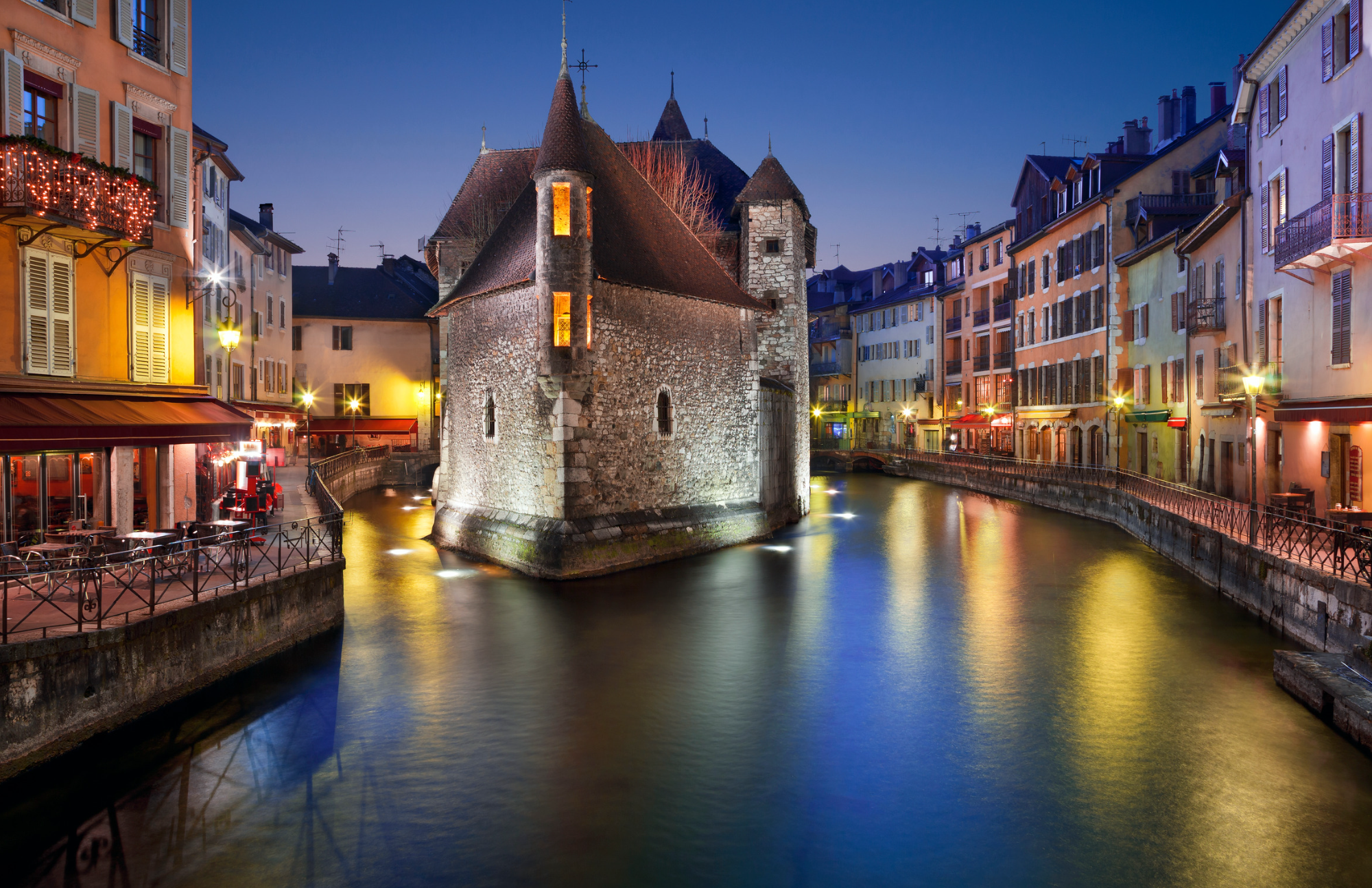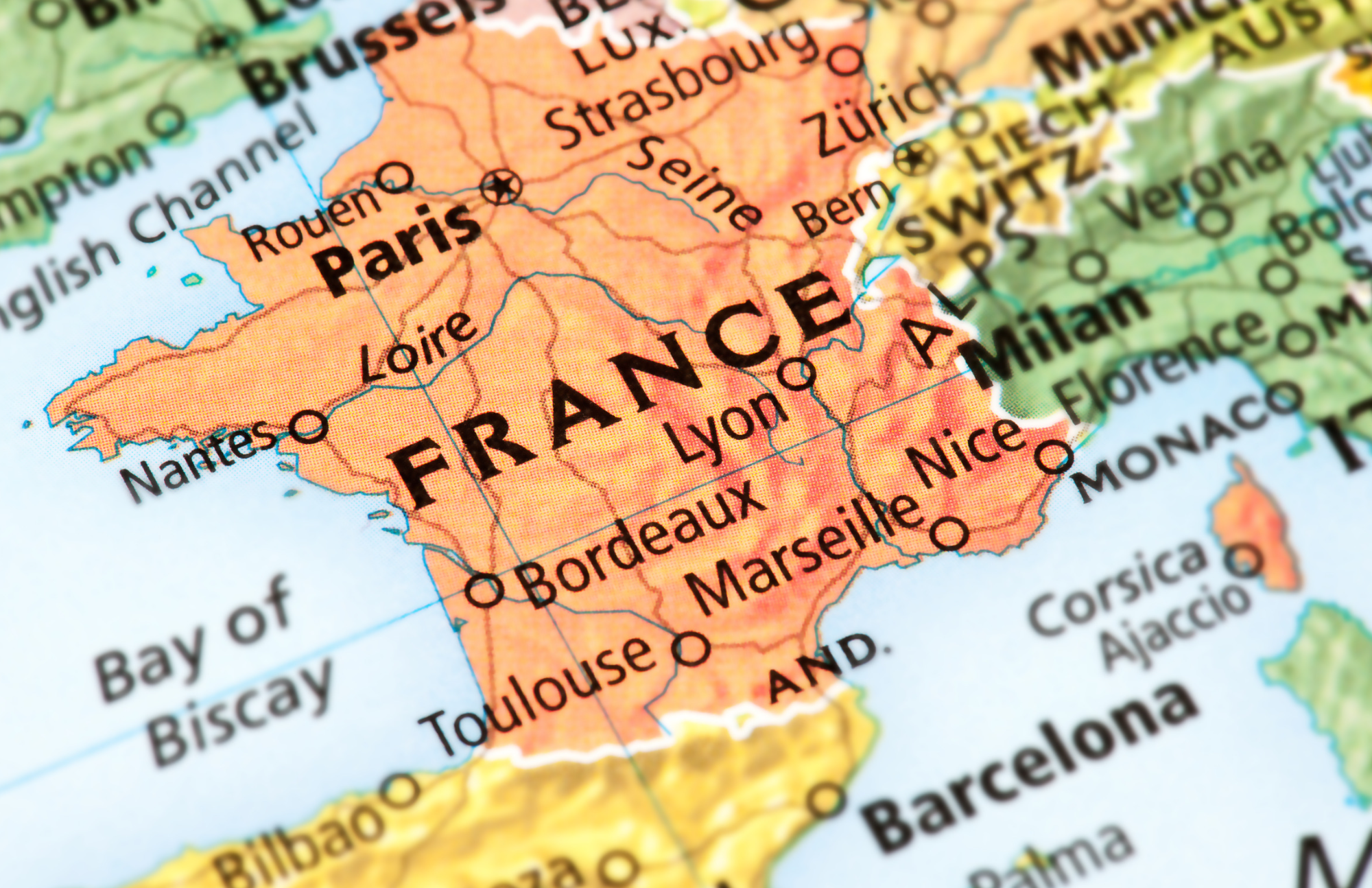An American expat in France
I am an American expat living in Annecy in the French Alps. I have moved within France three times - Pau, Paris and Annecy.
My first move to France was not easy. And this is an understatement.
This is my story.
I am from a small fishing and farming community in rural Massachusetts. I come from a fairly typical American family who doesn’t travel much beyond US borders and has little to no international experience. We didn’t travel abroad as children and no one in my family speaks any language other than English.
However, I always had a wandering heart and eagerly sought new opportunities. I always enjoyed foreign languages though never thought I would speak another one proficiently. And I was curious and intrigued by all things not-American.
I first left the US to live abroad at the age of 25, being the first family member to live overseas, and setting the course of my expat life.

My First Move
My boyfriend (now husband), whom I met when I was 23 in Oregon, was a German student completing his Master’s degree in the US while I was an undergrad. As such, his time in the US had an expiration date due to visa issues. We knew we would have to move abroad if we wanted to stay together. Something I found dazzlingly exciting. I had studied abroad at this point, worked a bit in Latin America, and had spent a fair amount of time overseas but had never moved so permanently to call another country my home.
When he was close to finishing his degree, it was time to explore our options and consider where the wind might take us. And so the quest began to find work overseas.
Unknowingly, New Zealand was the first of many expatriations to come.

Life in Aotearoa New Zealand
Speaking the same language and not finding the culture too far from my own, I quickly found my place, purpose, and life in my new country. For my husband and I, our jobs, studies, friends, community, and flatmates gave us a deep sense of rootedness in our home away from home.
Our friendship circle was largely international in our first few years in Wellington, the capital of NZ. Generally spanning the globe, our friends were people like us - foreigners in a new country enjoying the beauty, hospitality, and ease of Kiwi life. However, by the time we left over five years later, nearly all of our friends were Kiwis. We had integrated and we lived a local’s life.
We were beautifully settled and on top of the world…or in this case, at the bottom of the world!
Our place had been found. We had our ibasho in our new country.
My Second Move
When my husband’s dad got sick back in Germany, we knew we had to make our way closer to that part of the world. Sitting in Easter Island (Rapa Nui) as I did my Master’s thesis research, I spoke to my husband in the internet cafe over Skype. He said, “I got a job in France. We can move in the coming months. What do you think?”.
I loved my life in New Zealand and didn’t want to leave. I was perfectly settled and perfectly happy. I had found my place and I had found my people.
But I also knew that I kind of had to go. Family is important and I didn’t want to regret the decision later if something happened to his dad. (It turned out to have been the right choice in this regard as he passed one and a half years later).
But also, I would be lying if I said my adventurous self wasn’t intrigued by the idea of living in France. It’s a country that draws so much allure for the average American and I was no different.
What an opportunity!
So I said yes to this next adventure. I tried not to think much about what I was leaving behind in my home of Aotearoa. I just thought about what my European life would now bring. And I was excited. I was intrigued. But I was also really scared. I had been to France when I was younger (my only international experience in my youth) and it was NOT a good experience. In fact, in many ways it was downright awful.
Would this time be the same? Would I be made to feel like the stupid American? Would I be treated poorly? Or would I be accepted?
These questions about being an American in France were at the forefront of my mind. But surely it would be ok, right? Surely it would be different this time. I was young then and maybe I wasn't remember things the way they were. Maybe I was too sensitive.
Everything would be fine. It had to be…

Life in Pau as an American Expat
I was still finishing my Master’s thesis when it came time to move to France, so I stayed behind while my husband moved to Pau and began setting up our new expat life. It was his first job after finishing his Ph.D. It wasn’t in Germany but it was a heck of a lot closer than Wellington, NZ.
I moved about a year later. I arrived in this small French town in the foothills of the Pyrenees, and not far from the stunning beach towns of the Basque coast, in the hot and balmy month of August.
It should have been heaven…But the landing was rough.
I went from a thriving life full of friends, community, studies, job, volunteer work, sports, and hobbies to NOTHING. Zero. Nill. It was radio silence.
I couldn’t speak French. I didn’t have my work visa yet and I didn’t know anyone. It was a small town with, from what I could see, nothing going on.
I was SO lonely.
My mind went back to the bad experiences of being an American in France that I had had when I was at the tender age of 13. Memories from this time in life tend to stick firmly with you, especially when they are a first (it was my first time overseas and in a new country). It was really hard to shake the idea that I was not only unwelcome as an American in France but I was despised simply because of where I was from.
I was afraid to leave my house and interact with the world. I couldn’t speak a word of French despite having studied it for YEARS in school. And I only seemed to be ok if my husband was by my side. He, after all, now already spoke French. He had been there for a year, and he was busy and engaged with his new, exciting job.
Each night I waited for him to come home. I waited for the weekend to arrive, for the next trip away or the next visitors to come. I was as far from the present moment as I had ever been. I lived entirely in the future. Looking always ahead for when things would be better.
I got depressed.
As a person who has never experienced depression before, I know now what that feels like, at least to some degree. I sat in my house day in and day out. I sat on my couch and read every book we had. I watched way too much television. I even stopped cooking (a big one for me).
I was paralyzed. I was lonely. And I felt completely out of place. I missed my old life. I missed my friends and my action-packed days. I didn’t know what to do in my new home.
I didn’t know how to go through this transition and build my life again. Where should I even start?
It seemed so easy in New Zealand. So straightforward. I had moments of loneliness there, too - a normal feeling for us expats. But I never felt hopeless. Nothing felt unattainable. And for every moment of loneliness in New Zealand, I had 10 moments of inspiration and gratitude. Everything seemed possible and I had the motivation to build my life.
What happened?

Since this move to the Southwest of France, I have had five more international moves in four different countries - seven international moves in the last 15 years.
Three of those moves have been to three different towns in France - Pau, Paris, and Annecy.
Being an American in France has its challenges but no matter where I have moved in the world, each time I have needed to pick myself up and find a way to find my way.
It is easy to think that the expat life is “the good life”. And in many ways, it is or can be. But it also takes courage to leave everything behind and find a life outside your comfort-zone. And building that life takes time, effort, energy, and patience.
And despite what social media might show you about expat life, I have rarely met an expat that doesn’t struggle in some way.
It’s really hard to admit that life isn’t perfect.
It takes courage to say that your expat life isn’t what you thought. We may feel like we should be grateful. That this is what we wanted and we should be happy. We hear people tell us all the time how lucky we are and how amazing it is that we can have all of these experiences.
This can make us apprehensive to share our real feelings and thoughts. After all, we picked this. We made this choice.
To others, we are "living the dream". This adds salt to the wound when you feel homesick, unsure of your place, sad, and missing your life.
None of my moves have been as hard as the move to Pau, but moving abroad is hard.
This is why I started my coaching business for expat women. I don’t want others to have to feel like I did. I want to give women the tools and tips I now know after years of experience moving around the world so that they can ease their transition, embrace their new life and feel happy each and every day.
This is what I want for you. This is what I can help you with.
While I know it isn’t always easy to pick yourself up and start building your new life, it is essential for having a successful expatriation. Try not to be overwhelmed by the process; think of it as building something brick by brick. Slowly, steadily and firmly.
I know this is easier said than done. Believe me.
I leave you now with 10 quick tips.
If you are an American who has just arrived in France or if you are about to move to France and are wondering where to start.
I hope this gives you a little jumping-off point. This is the tip of the iceberg though and if you need personalized support, I would love to work with you.
Book your free call here.

10 Tips for American Expats in France:
- Learn French: While English is spoken in some parts of France, especially in touristy areas, learning French will greatly enhance your experience. It will help you communicate with locals, make friends, and integrate into the local community.
- Embrace the culture: France has a rich cultural heritage, and embracing the French culture can help you connect with the locals. Try to immerse yourself in the local customs, traditions, and way of life. Appreciate the art, cuisine, and history of France, and be open to new experiences and perspectives.
- Respect local customs and etiquette: French people place a high value on politeness and respect. Familiarize yourself with the local customs and etiquette, such as greeting people with a "Bonjour" (hello) or "Bonsoir" (good evening), saying "s'il vous plaît" (please) and "merci" (thank you), and using formal titles like "Monsieur" (Sir) or "Madame" (Madam) when appropriate.
- Be mindful of meal times: In France, meal times are taken seriously, and the French typically have set times for breakfast, lunch, and dinner. Lunchtime is usually between 12:00 PM and 2:00 PM, and dinner is typically later in the evening, around 8:00 PM or even later. Plan your schedule accordingly and be mindful of local eating habits.
- Get to know your neighborhood: Take the time to explore your local area, get to know your neighbors, and become part of your community. Visit local markets, cafes, and shops, and engage in social activities to meet new people and build connections.
- Understand the healthcare system: France has a universal healthcare system that provides high-quality healthcare to its residents. Familiarize yourself with the French healthcare system, including the process of registering with a local doctor, obtaining health insurance, and understanding how healthcare services are accessed and billed.
- Adapt to the pace of life: The pace of life in France may be different from what you're used to in the United States. The French generally value work-life balance and prioritize leisure time, so don't be surprised if things seem to move at a slower pace. Take the opportunity to enjoy the relaxed lifestyle and appreciate the art of "joie de vivre" (joy of living) that the French are known for.
- Stay open-minded and flexible: Moving to a foreign country can be challenging, and you may encounter cultural differences and language barriers. Stay open-minded, patient, and flexible as you navigate these challenges. Embrace the opportunity to learn and grow, and maintain a positive attitude.
- Stay connected with home: While it's important to immerse yourself in French culture, it's also important to stay connected with your home country. Keep in touch with family and friends back home, and find ways to maintain your American traditions and customs, especially during special occasions or holidays.
- Seek support: Living abroad can sometimes feel overwhelming. Don't hesitate to seek support if you need help settling in, understanding the local bureaucracy, or dealing with any challenges. We are here for you!
Are you following your spouse around the world and struggling to find your place? Are you lonely and feeling lost?
As an American in France, I am happy to help you navigate your new life here. This is what I know best and I am so happy to help you make the most of your time in your new country.
Please don’t hesitate to book your free call so you can start feeling better today in your expat life!

